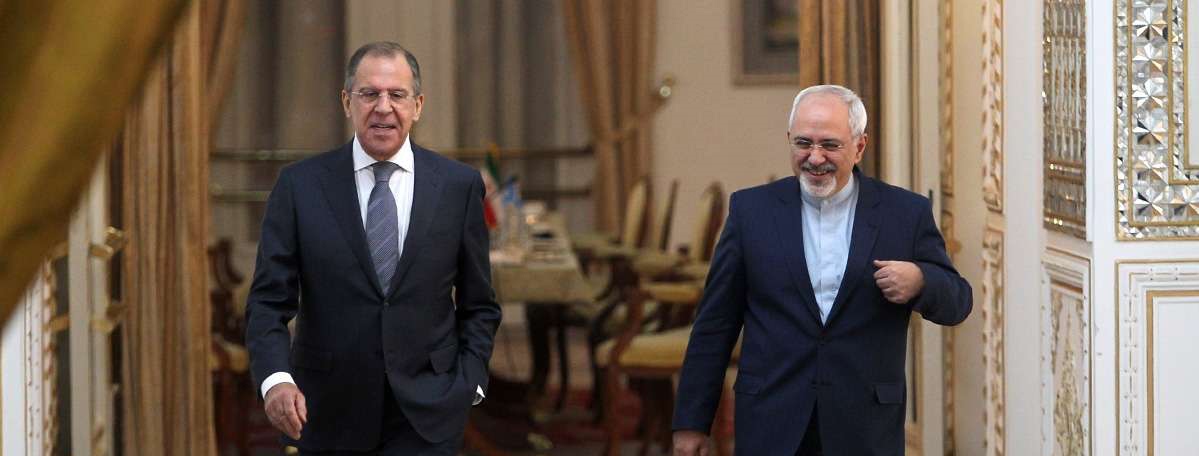Iran reaches out to Russia
May 15, 2018 | Expert Insights

Iranian Foreign Minister Mohammad Javad Zarif has arrived in Moscow to conduct high level meetings regarding the Iranian nuclear deal with his Russian counterpart. According to him, Foreign Minister Sergei Lavrovhas assured Moscow’s full cooperation to save the sanctity of the deal even after US President Donald Trump withdrew from the agreement.
Background
In the 2000s, reports began emerging on Iran running a uranium enrichment program in secret. An investigation by the IAEA revealed that Iran had not declared a number of its nuclear activities to the group. Thus, the nation was subjected to multiple harsh sanctions from the international community. This has cost the nation billions of dollars (estimated $100 billion in oil revenues alone till 2015). It has also lost out on foreign direct investment.
On 2 April 2015, the P5+1 and Iran reached a provisional agreement that sought to lift most of the sanctions in exchange for limits on Iran's nuclear programs extending for at least ten years. When the International Atomic Energy Agency (IAEA) certified that Iran had restricted its sensitive nuclear activities, the UN sanctions were lifted on January 16, 2016.
The United States and Iran do not have any formal diplomatic relations or ties. The two nations share an acrimonious relationship. In 2002, US President George W Bush referred to Iran as being part of the “axis of evil.”
US President Trump refused to certify Iran’s compliance with the deal in October last year. He directed his administration to “address the deal’s many flaws so that the Iranian regime can never threaten the world with nuclear weapons.” Additionally, in January this year, Trump announced that he would extend the waiver of sanctions until Europe and the US could fix the deal. Washington hopes for the European allies to commit to improving the deal by May, in return for which it would renew sanctions relief.
Analysis
Even though the agreement has support of the international community including the European Union, in May 2018, President Trump withdrew the US from the deal. His actions came just weeks after French President Macron and German Chancellor Angela Merkel met with Trump to discourage him from nullifying the deal.
At the time, Trump stated, “It is clear to me that we cannot prevent an Iranian nuclear bomb under the decaying and rotten structure of the current agreement. The Iran deal is defective at its core. If we do nothing we know exactly what will happen." Former President Barack Obama, who rarely comments on his successor, issued a statement noting that this move was a "serious mistake" that could leave the US with a "losing choice between a nuclear-armed Iran or another war in the Middle East."
Meanwhile, Iran has begun working towards supporting the other signatories to ensure the deal remains in place even without US support. Iranian Foreign Minister Mohammad Javad Zarif has already met with authorities in Beijing. He met with Chinese Foreign Minister Wang Yi who reiterated Beijing's support for the deal, according to state media Xinhua. "China will take an objective, fair and responsible attitude, keep communication and cooperation with all parties concerned, and continue to work to maintain the deal," Wang said, adding the agreement was "hard-earned."
He also met with his counterpart in Russia, Foreign Minister Sergei Lavrov. Zarif has been quoted by the RIA news agency as stating that the meeting was favourable. He said that during the meeting, Russia had confirmed its readiness to respect the Iran nuclear deal. He also stated that Russia has vowed to do everything in its power to save the sanctity of the deal. In the recent years, Russia has taken a large role in the politics of Middle East.
UK Prime Minister Theresa May has also spoken to Iranian President Hassan Rouhani to assure her support. "She said it is in both the UK and Iran's national security interests to maintain the deal and welcomed President Rouhani's public commitment to abide by its terms, adding that it is essential that Iran continues to meet its obligations," a UK government spokesperson said in a statement. Germany and France have also voiced their support for salvaging the deal.
Assessment
Our assessment is that US President Donald Trump’s actions put him in direct odds with most of the international community including US allies. It is possible that US’ withdrawal from this agreement would undermine Washington's credibility in future negotiations -- particularly with North Korea. It would also result in Russia gaining more influence in Middle East. There are also heightened concerns that this further destabilizes the highly volatile region and could result in an all-out war especially between Iran and Israel.








Comments